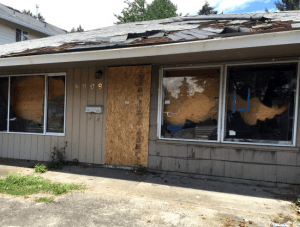Massachusetts Foreclosure Bill that Creates Incentives for Speedy Foreclosures
In Massachusetts, the legislature is considering passing a bill that would require banks to be more responsible for the upkeep of foreclosed properties. The bill would require banks to post a $10,000 bond with each foreclosed property that would be used to maintain the property if the bank fails to do so. If passed, the bill will provide relief to taxpayers who currently pay the cost of keeping foreclosed houses safe and maintained.
Not surprisingly, the Massachusetts Bankers Association opposes the legislation. They argue that requiring banks to post bonds for foreclosed properties would increase the cost of borrowing to all banking customers.
How Do Foreclosures Work? In order to foreclose on a mortgage, the lender must first prove that the borrower is in default. After the lender contacts the borrower and attempts to resolve the default with the homeowner, the lender files a lawsuit with the court against the borrower. The purpose of filing a lawsuit is to obtain court approval to initiate foreclosure. Because the lender must go through court in order to initiate foreclosure proceedings, the process is known as judicial foreclosure. 
Non-judicial foreclosures occur when the borrower signs a deed of trust which contains the power of sale clause. The clause enables the trustee to initiate a foreclosure sale without having to go to court. The trustee starts the non-judicial foreclosure process by recording a notice of default and election to sell. After a three-month waiting period, the trustee may publicize, post, and record a notice of sale. If the sale is not postponed and the borrower does not exercise his right of reinstatement or redemption, the property is sold at action to the highest bidder.
What Responsibility do Banks Have to Maintain Foreclosed Properties?
Banks are supposed to foreclose upon properties quickly, but that often is not the case. Most banks do not have the extra incentive in the form of a security deposit or bond, so taking several months or even years to re-sell the property is the norm.
Some states, however, have enacted similar legislation. Banks and lenders in Hempstead, New York have to post a $25,000 security deposit each time a home in the town goes into foreclosure. In 2014, New Jersey enacted a law that requires creditors to maintain vacant property during pending foreclosures. Unlike Hempstead, banks aren’t required to post a security bond. Instead, the banks are fined if they are found to have not adequately maintained the vacant property.
Why enact this legislation? Mainly to prevent zombie properties, or foreclosed homes that have become abandoned or vacant, from depreciating the values of neighboring homes. When a homeowner falls behind on the mortgage, the bank begins the foreclosure process, which includes kicking out the homeowner. Foreclosure procedures are long and arduous in most states. As a result, many banks let the property simply sit in a state of disrepair for months or years. The effect is that the property falls into a state of disrepair which depreciates the value of surrounding properties.
In short, most states don’t have requirements for banks to post security deposits to incentivize banks to speed-up the foreclosure process.
Are Security Bonds Posted by Banks a Good Idea?
The impact of foreclosures on the surrounding neighborhood is well documented. For instance, Mount Vernon, New York, lost a whopping $3.9 million in home value due to just 19 zombie homes in the area. Zombie properties along with bank and federally-owned foreclosed home have decreased property values in Monroe County, New York by as much as $11 million.
Massachusetts’s proposed legislation will help prevent foreclosed properties from sitting unattended and falling into a state of disrepair. What better way to encourage banks to quickly foreclose upon a property than to make them pay a security deposit? If the bank quickly forecloses on the property, they will receive their security deposit back. If they let the home become a zombie property, their security bond is cashed by the city to maintain the property.


Comments